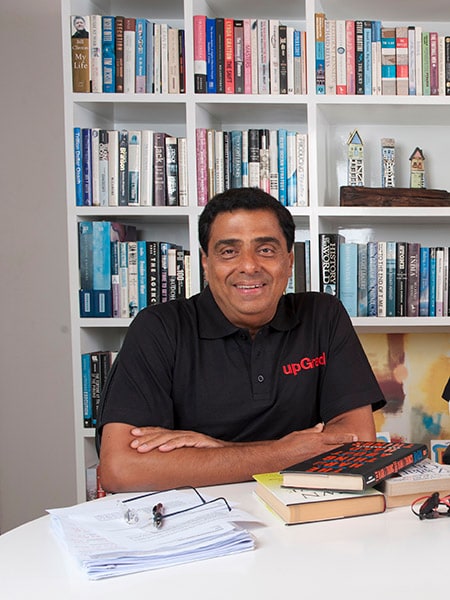
Lifelong learning is no longer optional, it's necessary: Ronnie Screwvala
The serial entrepreneur talks about his second book, being a student for life, procrastination, and how he upskills to take on new challenges
 Image: Mexy Xavier
Image: Mexy Xavier
Forbes India recently caught up with serial entrepreneur Ronnie Screwvala to talk about his latest book ‘Skill it, Kill it’, and how he keeps himself upskilled, why your habits should also change with the times, and what he’d tell his younger self. Edited excerpts
Q. What inspired you to write the book? And what is the one thing you want readers to take away from the book?
In the last five years since we’ve founded upGrad, millions of students have applied to us. I saw a serious gap when it comes to their soft skills. Now ‘skill’ means lots of things to a lot of people, but if you don’t practice it and make a real change, you’ll always be a five on ten which is neither here or there. For me, I’d rather be a two on ten or an eight on ten, because at least with a two on ten, you know that you have to change, and with an eight on ten, you know that you’ve got somewhere.
In my first book, ‘Dream with Your Eyes Open: An Entrepreneurial Journey,’ I aimed to talk about failures for entrepreneurs. I failed my BCom [bachelors of commerce], and then decided to be an entrepreneur. Back then, I felt no one was talking about failures as much as they needed to.
The one thing I hope people take away is that learning never stops. In today’s day and age people are very competitive, so it’s going to be important to realise that soft skills are as important, if not more, as hard skills. I see myself as a product of soft skills. Almost every chapter of the book is about something that helped me through life, like gain more confidence and focus, which helped get better outputs.






